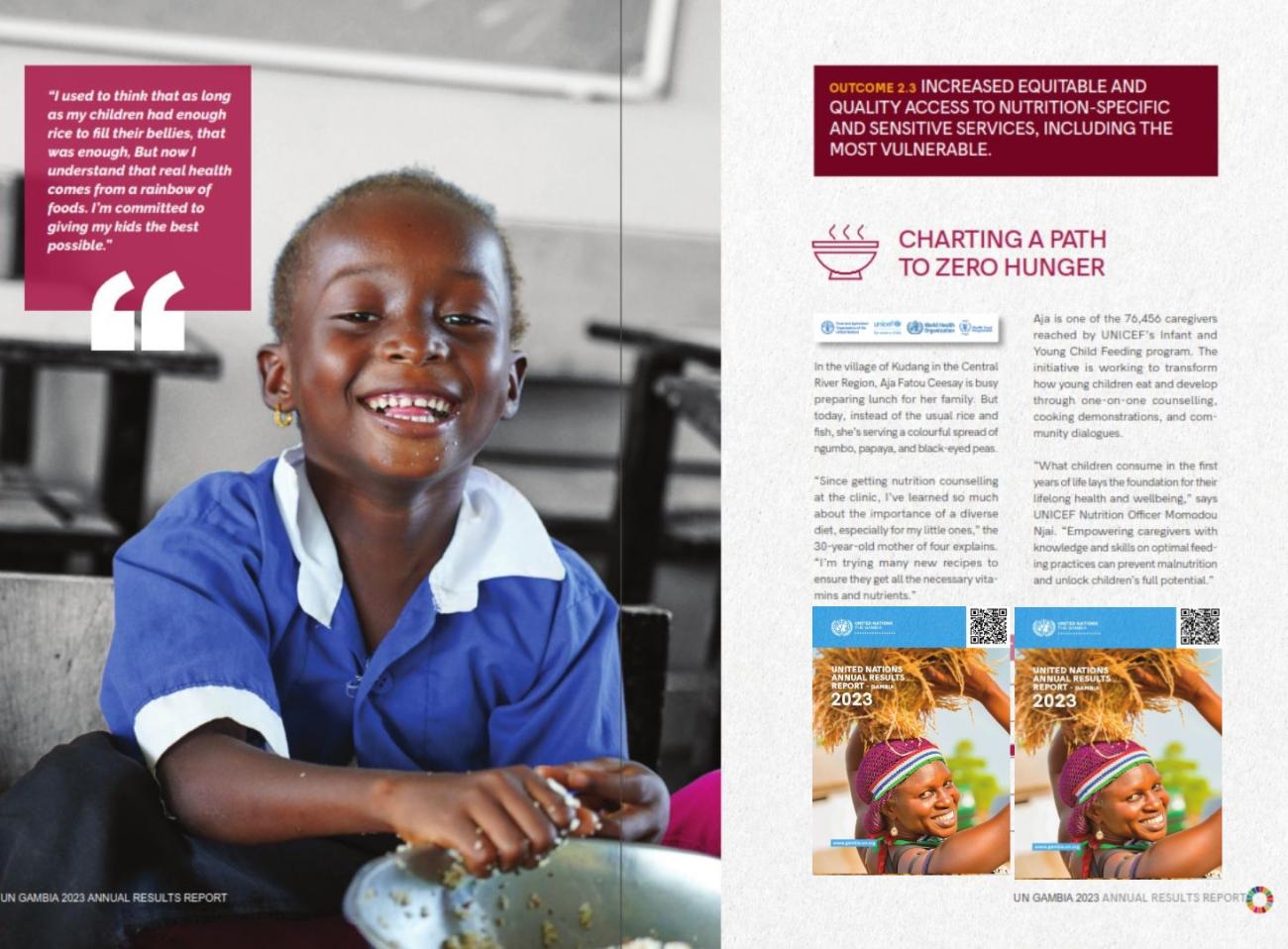UNICEF's Infant Feeding program in The Gambia empowers caregivers like Aja to improve child nutrition with diverse diets, counseling, and community support.
CHARTING A PATH TO ZERO HUNGER
In the village of Kudang in the Central River Region, Aja Fatou Ceesay is busy preparing lunch for her family. But today, instead of the usual rice and fish, she’s serving a colorful spread of ngumbo, papaya, and black-eyed peas.
“Since getting nutrition counseling at the clinic, I’ve learned so much about the importance of a diverse diet, especially for my little ones,” the 30-year-old mother of four explains. “I’m trying many new recipes to ensure they get all the necessary vitamins and nutrients.”
Aja is one of the 76,456 caregivers reached by UNICEF’s Infant and Young Child Feeding program. The initiative is working to transform how young children eat and develop through one-on-one counseling, cooking demonstrations, and community engagements.
“What children consume in the first years of life lays the foundation for their lifelong health and wellbeing,” says nutrition expert Modou Njai. “Empowering caregivers with knowledge and skills on optimal feeding practices can prevent malnutrition and unlock children’s full potential.”





